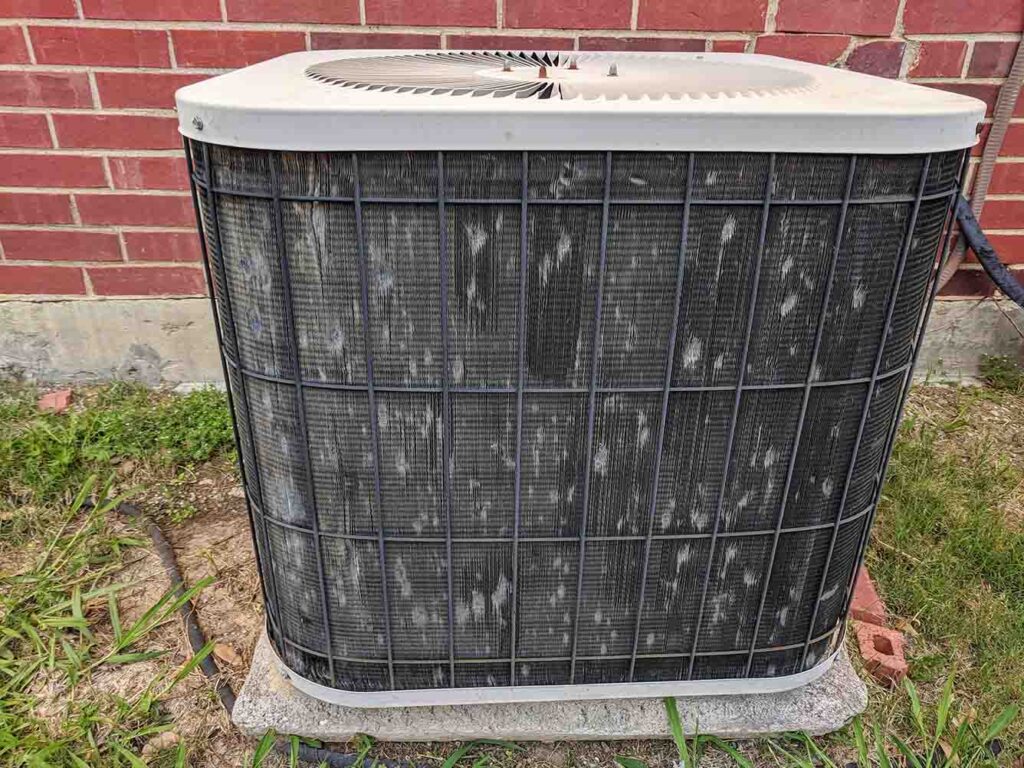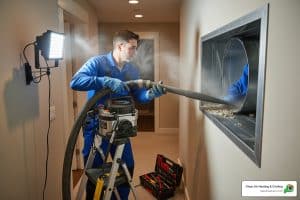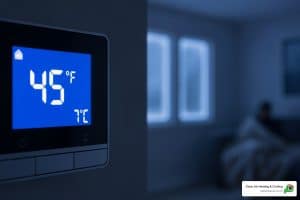Like any appliance or equipment that serves a vital function in your home, HVAC systems need a little TLC after years of usage. These are complex systems with various components that can wear out over time, leading to the inevitable question: Should you repair or replace your HVAC system when it encounters issues? This decision can have a significant impact on your comfort, energy efficiency, and budget.
The Clean Air Heating & Cooling team is here to help make that decision a little easier for you! Let’s explore the factors to consider when deciding whether to repair or replace your HVAC system.
Addressing The $5,000 Rule
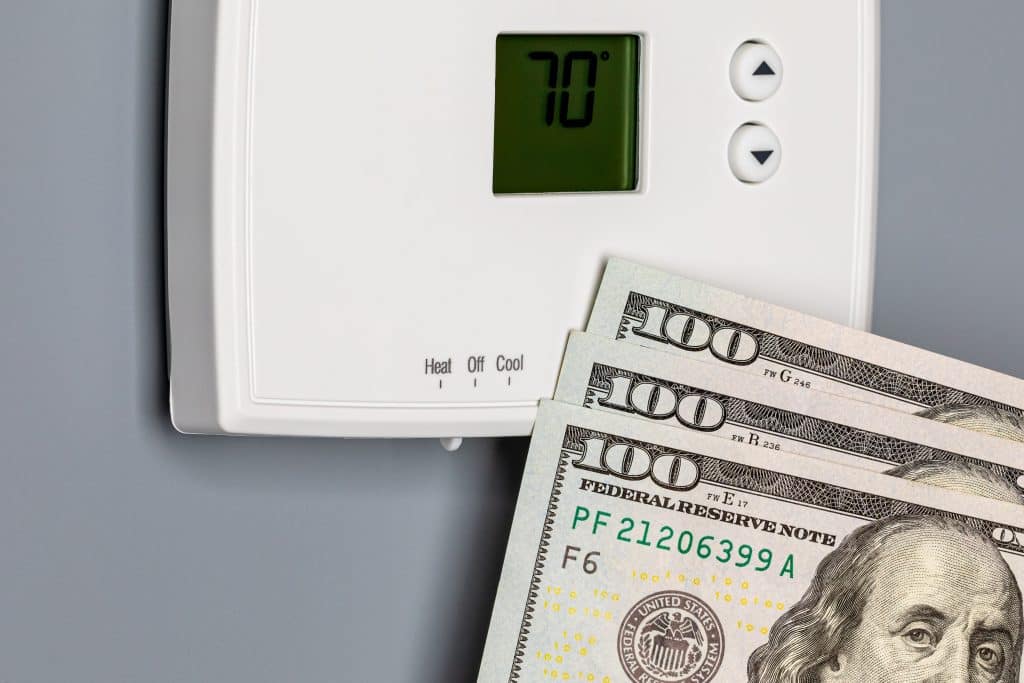
Before getting into the specific issues or malfunctions your HVAC system is experiencing, there is a very simple formula to help you decide whether you should repair or replace your system. The $5,000 rule for repairing vs. replacing HVAC systems is a practical guideline that considers both the age of your HVAC system and the estimated cost of repair. It suggests that if the age of your HVAC system, when multiplied by the cost of the repair, exceeds $5,000, it’s often more economically sensible to opt for a replacement.
For instance, if you have a 15-year-old HVAC system that requires a repair estimated at $400, the result of multiplying the age (15) by the repair cost ($400) is $6,000, which surpasses the $5,000 threshold. In such cases, it may be wiser to invest in a new system instead of sinking more money into an aging one that is likely to continue experiencing issues. However, it’s crucial to remember that this rule is a rough estimate, and other factors such as energy efficiency, comfort, and professional advice should also be considered when making the final decision.
When To Repair HVAC Systems
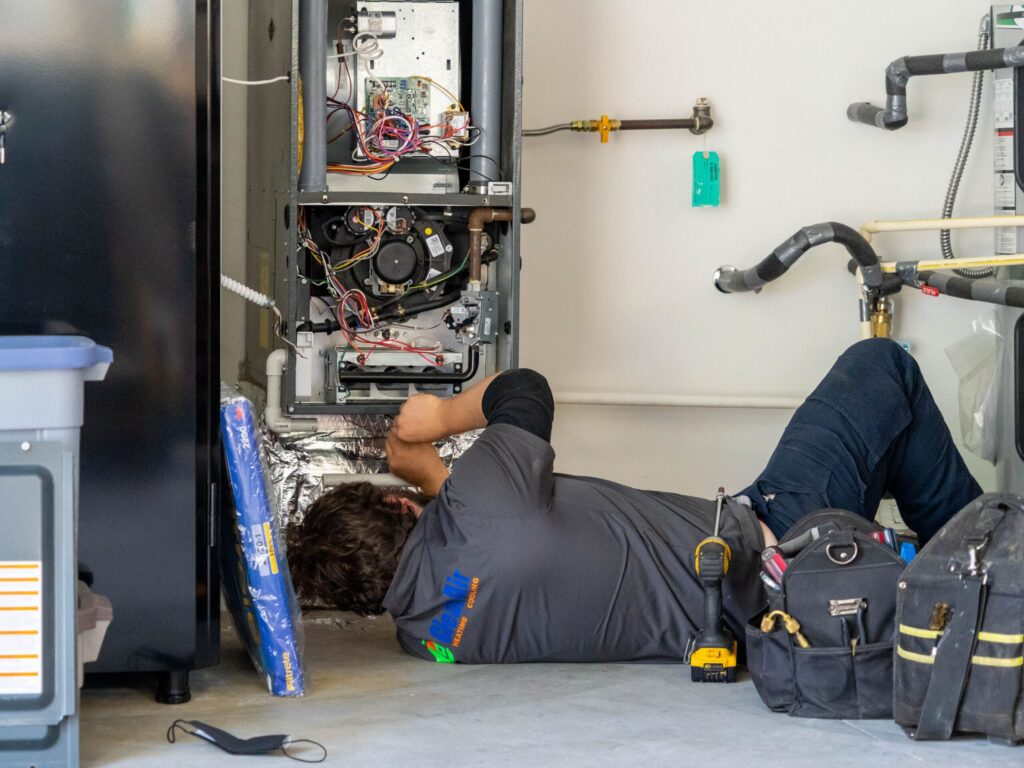
There are times when simple repairs to your HVAC system may be more beneficial than a total overhaul and replacement. Of course, finances will always be a major deciding factor. If you can not afford an entirely new HVAC system, you will have to settle for repairs to get it running as well as possible. However, if the warning signs for HVAC repairs are addressed promptly, you can quickly and easily take care of minor issues, avoiding the need for a more costly replacement.
Poor Airflow
When dealing with insufficient airflow in your HVAC system, opting for repairs is often the preferable choice over a complete replacement. Insufficient airflow can result from issues such as clogged air filters, blocked vents, or a malfunctioning blower motor, all of which can be addressed through targeted repairs.
Repairing the specific components causing the airflow problem is typically more cost-effective and minimizes the disruption to your home environment compared to the significant expense and time associated with replacing the entire HVAC system. Additionally, by addressing the root cause of the issue, repairs can quickly restore proper airflow, improving your comfort and indoor air quality without the need for a full system replacement.
Strange Odors & Noises

Addressing strange noises and odors in your HVAC system through repairs is often the preferable choice for several reasons. Strange noises, such as rattling, hissing, or banging, usually indicate specific component issues that can be resolved with repairs, such as loose parts, damaged fans, or debris in the ductwork.
Similarly, unpleasant odors may result from mold or bacteria growth, which can be treated and resolved through cleaning and repairs. Repairing these problems is typically more cost-effective than replacing the entire HVAC system, allowing you to eliminate the noises and odors while extending the life of your equipment and preserving your indoor air quality.
Fluid Leaks
When dealing with fluid leaks in your HVAC system, opting for repairs is often the preferred choice over a complete replacement. Fluid leaks, whether they involve water or refrigerant, typically result from specific issues like clogged drain lines or damaged components, such as coils or connections. These issues can often be localized and repaired by HVAC professionals without the need for a costly system replacement.
Repairing the leaks not only resolves the problem but also helps you maintain your existing HVAC system’s functionality, efficiency, and longevity, making it a more cost-effective and environmentally responsible choice.
System Is Under 10 Years Old

Opting for HVAC repairs instead of a complete replacement is generally more favorable for systems that are newer than 10 years old. These relatively young HVAC systems typically have not reached their expected lifespan, which is typically 15-20 years with proper maintenance. Repairing specific issues, such as a faulty component or minor malfunction, is often a cost-effective way to ensure your system continues to operate efficiently.
Replacing a relatively new HVAC system can be an unnecessary expense that doesn’t provide a significant improvement in energy efficiency or comfort, making repairs the more practical choice to maximize the value and longevity of your existing equipment.
When To Replace HVAC Systems
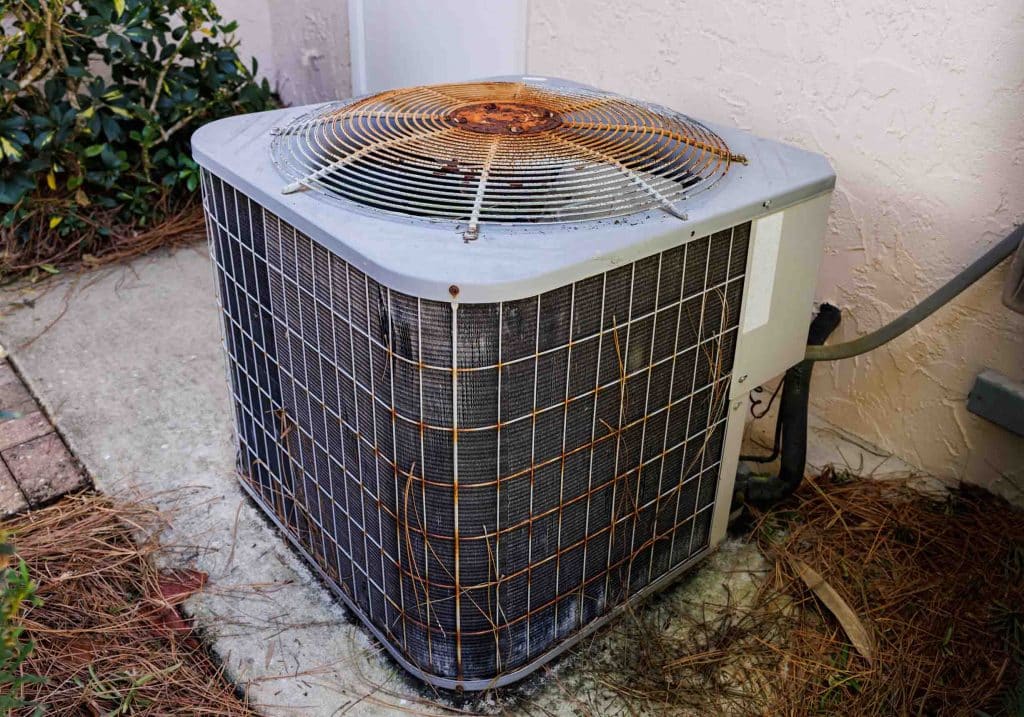
Unfortunately, there are circumstances and situations that call for more drastic measures. Replacing your HVAC system is a bit more of an expensive inconvenience than repairing it, but it is unavoidable if certain issues are plaguing the system. If you have gotten your HVAC system repaired more than twice in a recent year and problems persist, replacing it may be the way to go. Replacement may seem like a hassle, but, when necessary, it can make your home much more comfortable and resolve issues that can not be taken care of by repairs.
System Needs Yearly Repairs
When your HVAC system requires repairs every year, it’s a strong indicator that the system is becoming unreliable and potentially nearing the end of its lifespan. In such cases, HVAC replacement is often a better choice than repeatedly investing in annual repairs. Continual repairs can quickly add up in terms of costs, inconvenience, and potential discomfort due to system downtime.
By replacing the HVAC system with a newer and more reliable model, you can enjoy improved performance, reduced maintenance expenses, and peace of mind knowing that you won’t be dealing with frequent breakdowns. This not only saves you money in the long run but also ensures consistent comfort and efficiency in your home.
Energy Bills Consistently Rise

When your energy bills continue to rise, opting for HVAC replacement can be a more beneficial long-term solution. Rising energy costs are often an indication of an aging and inefficient HVAC system that is working harder to maintain your desired temperature. While repairs can address specific issues, they may not resolve the overall inefficiency of an older system. By investing in a newer, energy-efficient HVAC system, you can experience significant energy savings over time, offsetting the upfront cost of replacement.
Newer systems often come with higher SEER ratings and advanced features that optimize energy usage, resulting in lower monthly utility bills and reduced environmental impact, making HVAC replacement a wise choice for long-term savings and efficiency.
Fire & Carbon Monoxide Hazards
If a professional tells you that your HVAC system poses carbon monoxide or fire hazards, immediate replacement is the safest and most responsible choice. These hazards can pose severe risks to your home and family’s safety, and repairing the system may not guarantee the elimination of these dangers. Replacing the system allows you to install modern, code-compliant equipment with enhanced safety features, such as built-in safeguards and advanced monitoring systems to prevent carbon monoxide leaks and fire risks.
Prioritizing HVAC replacement in such situations is essential for the protection of your household, minimizing the potential for life-threatening emergencies and ensuring a secure and worry-free indoor environment.
System Is Over 10 Years Old
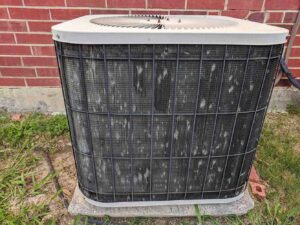
For HVAC systems that are over 10 years old, HVAC replacement often proves to be a more prudent choice than repairs. As systems age, they tend to become less efficient, less reliable, and more prone to breakdowns. Repairing individual components might temporarily fix issues but doesn’t address the overall decline in efficiency and performance. By opting for HVAC replacement, you can take advantage of newer models that offer enhanced energy efficiency, improved comfort features, and often come with warranties, providing peace of mind and potentially lowering long-term operating costs.
Replacing an older system can also spare you from the inconvenience and expense of frequent repairs, ensuring consistent indoor comfort and potentially reducing your energy bills in the process.
When To Seek Professional HVAC Services
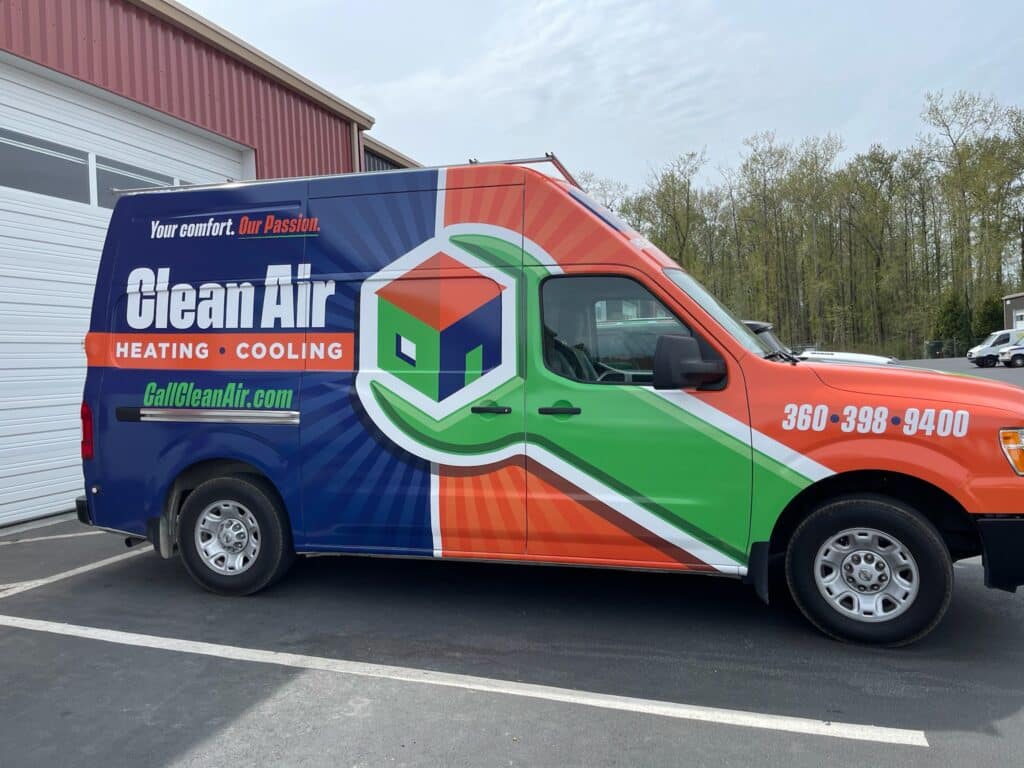
Without the proper knowledge, it can be difficult to determine whether your HVAC system needs repairs or a complete replacement. Knowing when to call a professional, on the other hand, is much easier to determine. If any of the issues above pertain to your system, calling a professional HVAC company is the best way to make sure the issue is assessed properly and taken care of effectively. Trying to diagnose and/or fix issues yourself can result in more damage being done to your system, so it is always a good idea to seek professional assistance for HVAC issues.
If you are in the Bellingham, WA area and you suspect your HVAC system needs repairs or a replacement, call Clean Air today at (360) 398-9400!

